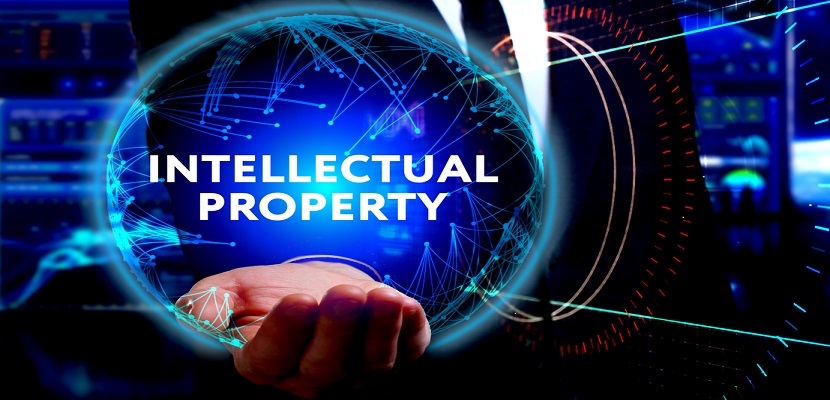Copyright is a legal concept that provides creators of original works with exclusive rights to control and profit from their creations. The purpose of copyright laws is to protect the creators' rights and incentivize creativity and innovation. Copyright laws protect the creators' exclusive rights to their work, including the right to reproduce, distribute, and publicly perform or display their work. It means that no one else can use or distribute their work without the creator's permission.
Copyright laws help protect creators' rights by ensuring they can control how their work is used, and be fairly compensated for their efforts. This encourages creators to continue creating, as they are assured of the ability to profit from their work. This in turn benefits society as a whole by promoting the creation of new and innovative works. Furthermore, copyright laws also help to balance the interests of creators with the public's interest in access to creative works. This is achieved through limitations and exceptions such as fair use, which allow for certain uses of copyrighted material without permission from the copyright owner.
Copyright laws promote creativity and innovation by protecting and monetizing creators' work while giving the public access to creative works. They help strike a balance between the interests of creators and the public, there by benefiting both parties.
The impact of digital technology on copyright:
Online piracy is a significant issue in the digital age it results in losses for creators who can't monetize their work. It's challenging to enforce copyright laws in the digital age as it's tough to identify and prosecute online piracy. Additionally, exclusive rights infringement can occur across multiple jurisdictions due to the international nature of the internet, making it hard to enforce copyright laws consistently. Despite these challenges, there have been efforts to strengthen copyright laws in the digital age. For example, the Digital Millennium Copyright Act (DMCA) in the United States provides a framework for addressing copyright infringement online, while the European Union has recently passed the Copyright Directive, which aims to strengthen the rights of creators in the digital age.
The impact of digital technology on copyright laws has been significant, with online piracy and illegal file-sharing posing significant challenges. Efforts to improve copyright laws in the digital age are underway, and future technology and copy-protection law developments will shape the landscape.
The Role Of Fair Use
Fair use is a legal doctrine that allows for limited use of copyrighted material without permission from the exclusive right owner. It is an important aspect of copyright law, as it enables individuals and organizations to use copy-protected material for a variety of purposes, including commentary, criticism, news reporting, teaching, scholarship, research, and parody.
The fair use doctrine is intended to strike a balance between the rights of exclusive rights owners and the public's interest in access to creative works. It allows for certain uses of copyrighted material without permission, provided that use is considered "fair."
Determining whether a particular use is considered fair use can be complex, as it depends on a variety of factors. These factors include the purpose and character of the use, the nature of the copyrighted work, the amount and substantiality of the portion used, and the effect of the use on the potential market for the copyrighted work.
In the digital age, fair use has become increasingly important, as it allows for the creation of new works and the dissemination of information in the digital realm. For example, fair use allows for the use of copyrighted material in online journalism, digital education, and online commentary.
Overall, fair use is a critical aspect of copyright law, as it allows for the creation and dissemination of new works while balancing the rights of copyright owners and the public's interest in access to creative works. Understanding fair use and how it applies to digital content is essential for creators, educators, journalists, and anyone else who works with copyrighted material in the digital age.
Digital Rights Management (DRM):
Digital rights management (DRM) is a technology that uses to protect copyrighted material from unauthorized use. DRM works by encrypting digital content, such as music, movies, or software, and requiring users to have a special key or code to access the content. This key or code is usually only provided to authorized users, such as paying customers or subscribers.
One of the main benefits of DRM is that it helps to prevent piracy and unauthorized distribution of copyrighted material. By encrypting digital content, DRM makes it more difficult for individuals to copy or share the content without permission from the copyright owner.
However, there are also some drawbacks to DRM. For example, DRM can limit the ability of consumers to use digital content in the ways that would like, such as making backup copies or transferring the content to different devices. DRM can also make it difficult for individuals to access digital content if they do not have the necessary key or code. In addition, DRM can have an impact on creators, as it can limit the ability of individuals to use their works in transformative or innovative ways. For example, it can make it more difficult for individuals to remix or create new works based on existing content.
Overall, DRM is a complex technology that has both pros and cons. While it can be effective in preventing piracy and protecting copyrighted material, it can also limit the ability of consumers and creators to use digital content in the ways that they would like. As digital content continues to play an increasingly important role in our lives, it is important to continue to evaluate the impact of DRM and to find ways to balance the interests of copyright owners and consumers.
International Copyright Law:
International copyright law refers to the legal framework that governs the protection of creative works across different countries. Copyright laws differ from country to country, and the variations in these laws can create challenges for enforcing exclusive rights in the digital age.
In general, copyright law grants the creator of an original work the exclusive right to use, distribute, and profit from that work. However, these rights may differ depending on the country where the work was created or where it is being used. For example, some countries may have different requirements for exclusive rights registration, and some may allow for fair use exceptions or limitations on copyright duration. Enforcing international copyright law can be particularly challenging because of the ease of digital piracy and the global nature of the internet. There are international treaties and agreements, such as the Berne Convention and the WIPO Copyright Treaty, that aim to harmonize copyright laws across different countries and provide a framework for international enforcement. However, these agreements are not always universally adopted or enforced, and legal actions can be complex and costly.
In summary, international copyright law is a complex and constantly evolving area of law that requires careful attention and cooperation from different countries to effectively protect the rights of creators and prevent digital piracy.
Best practices for creators and consumers:
For creators of digital content, it is essential to take steps to protect their work and ensure that it is not used without their permission. Here are some best practices for creators:
Register your work
In many countries, registering your copy protection can provide legal benefits and protections. It's important to know the requirements for copyright registration in your country. It is always advisable to hire an attorney for that purpose.
Monitor and enforce your rights
Regularly checking for unauthorized use of your work and taking legal action if necessary can help to protect your copyright. For consumers of digital content, it's important to respect the rights of creators and avoid infringing on their copyright.
Obtain permission
When using digital content, look for information on the creator and any copyright restrictions. If you want to use someone else's work, it's important to obtain permission first. This may involve contacting the creator directly and seeking permission to use or commercialize.
Avoid pirated content
Pirated content, such as illegal downloads or unauthorized copies, is often a violation of copyright and can lead to legal consequences.
By following these best practices, creators and consumers can work together to promote respect for copyright and protect the rights of creators in the digital age.



